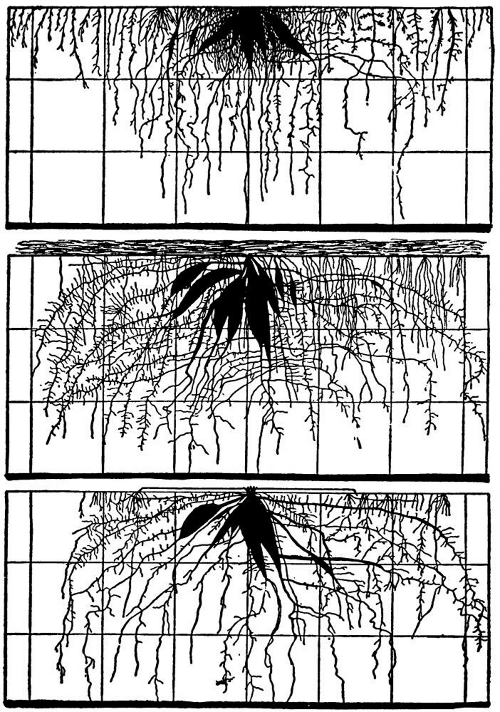The following information comes from Five Acres and Independence by M. G. Kains. Five Acres and Independence is also available to purchase in print.
People who think they “would like to have a little farm” naturally fall into two groups; those who are sure to fail and those likely to succeed. This book is written to help both! Its presentation of advantages and disadvantages, essential farming principles and practices should enable you to decide in which class you belong and whether or not you would be foolish or wise to risk making the plunge. In either case it should be worth many times its price because, on the one hand it should prevent foredoomed failure, and on the other, show you how to avoid delay, disappointment, perhaps disaster, but attain the satisfaction that characterizes personal and well directed efforts in farming.
If your experience in the country so far has been confined to vacations or summer residence and if your reading has been limited to literature that depicts the attractive features of farm life in vivid colors but purposely or thoughtlessly glosses over or fails to emphasize the objectionable ones you will doubtless be shocked at the stress placed in this book upon the drawbacks. My reason for doing this is that I want to present conditions not only as I know them to be but as you are almost certain to find them. “To be forewarned is to be forearmed.”
You may already know the country in summer, perhaps in spring or autumn—maybe during all the “growing season”—but do you know what it is to spend the winter in the country? How would you like to be snowed in as my family and I have been so that for ten weeks neither you nor your neighbors could use an automobile because of the deeply drifted snow? Can you and your family stand the isolation usually characteristic of farm life? Do you know from experience the meaning of hard, manual work from dawn to dark—and then by lantern-light? Are you prepared to forego salary or income for months at a stretch? I don’t seek to frighten you but merely to indicate that though farm life has its joys and satisfactions it also has its drawbacks.
No matter in which of the groups mentioned you place yourself, it is natural that you should ask whether I am a practical man or merely a professor or a writer! Though I must confess to having held professorial and editorial positions, these were because of my familiarity with practical matters. My experience began before my earliest “little red schoolhouse” days and, barring interruptions, has continued until the present.
My boyhood duties included not only the usual chores of the farm and those connected with fruit and vegetable gardening, poultry and bee-keeping, horse and cow care, but canning and pickling, soap and candle manufacture, meat curing and winemaking; in fact, practically everything which characterized farm life only a remove or two from pioneer conditions.

As my father, until my young manhood, was a renter of one place after another, I not only learned the disadvantages of this style of husbandry but gained considerable experience by correcting the mistakes of former tenants (and even owners!), especially in making neglected orchards, vineyards and gardens productive, and in learning how to manage a wide variety of soils.
At various times I worked on five farms, on one or another of which the leading features were dairy cattle, sheep, grain, hay, fruit, vegetables and bees. As the owners of these places were good farmers and communicative I learned much from them in addition to how to handle tools and implements effectively. At one time I owned a fruit farm with poultry as a side line, at another I managed the fruit department of a produce-raising concern, at still another planted about fifty acres of orchard and vineyard for a commercial orchardist. As occasion has presented I have also worked in greenhouses and nurseries.
Though, like a politician, I might “point with pride” to some personal successes I would rather present more significant ones made by others. Conversely, as some of my mistakes taught me more than the successes I prefer to hold them up as “horrible examples” (instead of the errors of others!). So you, Reader, may “henceforth take warning by my fall and shun the faults I fell in!”
